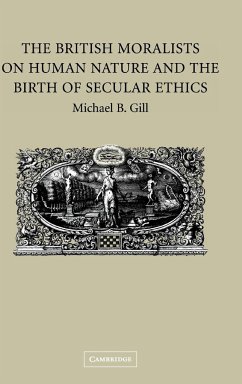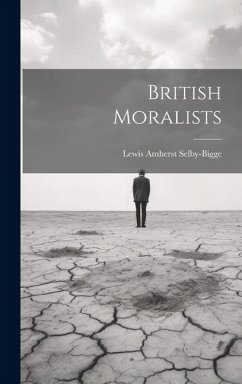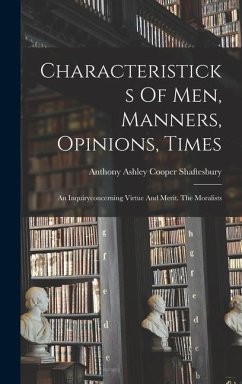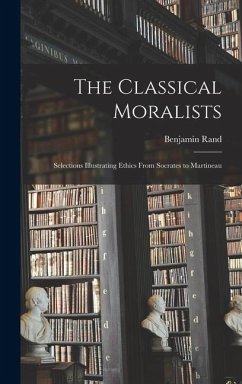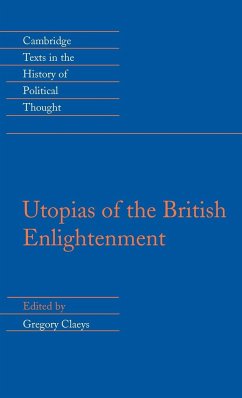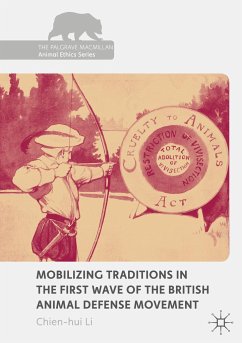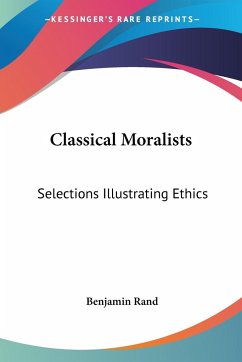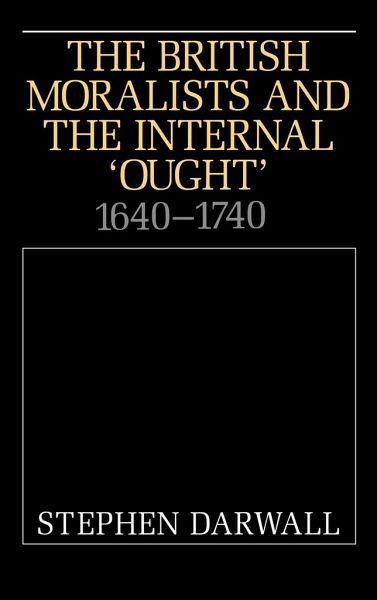
The British Moralists and the Internal 'Ought'
1640 1740
Versandkostenfrei!
Versandfertig in 1-2 Wochen
108,99 €
inkl. MwSt.

PAYBACK Punkte
54 °P sammeln!
This book is a major work in the history of ethics, and provides the first study of early modern British philosophy in several decades. Professor Darwall discerns two distinct traditions feeding into the moral philosophy of the seventeenth and eighteenth centuries. On the one hand, there is the empirical, naturalist tradition, comprising Hobbes, Locke, Cumberland, Hutcheson, and Hume, which argues that obligation is the practical force that empirical discoveries acquire in the process of deliberation. On the other hand, there is a group including Cudworth, Shaftesbury, Butler, and in some mome...
This book is a major work in the history of ethics, and provides the first study of early modern British philosophy in several decades. Professor Darwall discerns two distinct traditions feeding into the moral philosophy of the seventeenth and eighteenth centuries. On the one hand, there is the empirical, naturalist tradition, comprising Hobbes, Locke, Cumberland, Hutcheson, and Hume, which argues that obligation is the practical force that empirical discoveries acquire in the process of deliberation. On the other hand, there is a group including Cudworth, Shaftesbury, Butler, and in some moments Locke, which views obligation as inconceivable without autonomy and which seeks to develop a theory of the will as self-determining.
Table of contents:
1. The British moralists: inventing internalism; 2. Culverwell and Locke: classical and modern natural law; 3. Hobbes: ethics as 'consequences from the passions of men'; 4. Cumberland: obligation naturalised; 5. Cudworth: obligation and self-determining moral agency; 6. Locke: autonomy and obligation in the revised Essay; 7. Shaftesbury: authority and authorship; 8. Huteson: moral sentiment and calm desire; 9. Butler: conscience as self-authorising; 10. Hume: norms and the obligation to be just; 11. Concluding reflections.
This book is a major work in the history of ethics, and provides the first study of early modern British philosophy in several decades. It is the first attempt to trace the origins of the 'ought' in British philosophy of this period.
This book provides the first study of early modern British philosophy in several decades.
Table of contents:
1. The British moralists: inventing internalism; 2. Culverwell and Locke: classical and modern natural law; 3. Hobbes: ethics as 'consequences from the passions of men'; 4. Cumberland: obligation naturalised; 5. Cudworth: obligation and self-determining moral agency; 6. Locke: autonomy and obligation in the revised Essay; 7. Shaftesbury: authority and authorship; 8. Huteson: moral sentiment and calm desire; 9. Butler: conscience as self-authorising; 10. Hume: norms and the obligation to be just; 11. Concluding reflections.
This book is a major work in the history of ethics, and provides the first study of early modern British philosophy in several decades. It is the first attempt to trace the origins of the 'ought' in British philosophy of this period.
This book provides the first study of early modern British philosophy in several decades.





